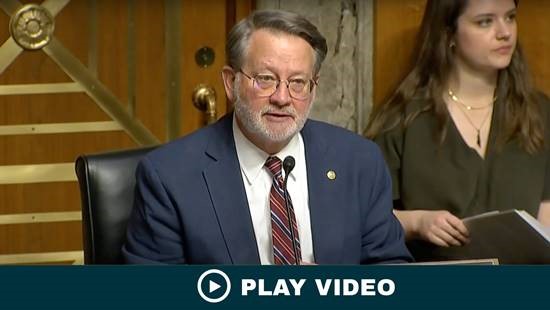WASHINGTON, D.C. – U.S. Senator Gary Peters (D-MI), Chairman of the Homeland Security and Governmental Affairs Committee, convened a hearing to examine federal agencies’ compliance with federal recordkeeping and disclosure laws. The committee heard from records management and transparency experts on how federal agencies’ failure to appropriately retain and disclose records obstructs Congressional oversight and prevents transparency and accountability for American taxpayers. The committee also heard about the challenges presented by rapid digitization and the National Archives and Records Administration’s (NARA) lack of resources and outdated records management technology. During the hearing, Peters highlighted the need to update the Federal Records Act and address the use of emerging technologies to ensure that federal agencies are more efficient and accountable.
“The federal government handles a massive number of records and documents. These records build an essential account of the work that the government does for the American people, and they help our constituents get access to the benefits and resources they need. These records also serve as an aid to Congressional oversight. They help us hold the executive branch accountable, ensure appropriate use of taxpayer dollars, and keep the federal government working well for the American people,” said Peters during his opening statement.
Peters continued: “Whether it’s adapting to new technologies, making it easier to enforce the guidelines we have in place, or committing more resources to records management, we can take steps to make this process work better. That’s why I’m working on legislation that would update the Federal Records Act, making our government more transparent, efficient, and accountable.”
To watch video of Senator Peters’ opening remarks, click here.
For text of Peters’ opening remarks as prepared, click here.
To watch video of Senator Peters’ questions, click here.
During the hearing, Peters and the witnesses discussed the most significant challenges to federal records management, and how Congress can work to address these issues. The witnesses also raised concerns about the limitations of federal records laws and the lack of insight the public has into how federal agencies handle records. Finally, the committee discussed what resources and technologies NARA requires to handle the rapid proliferation of electronic records, including when agencies use applications that automatically delete messages and when agency personnel use personal email addresses to avoid accountability.
###
